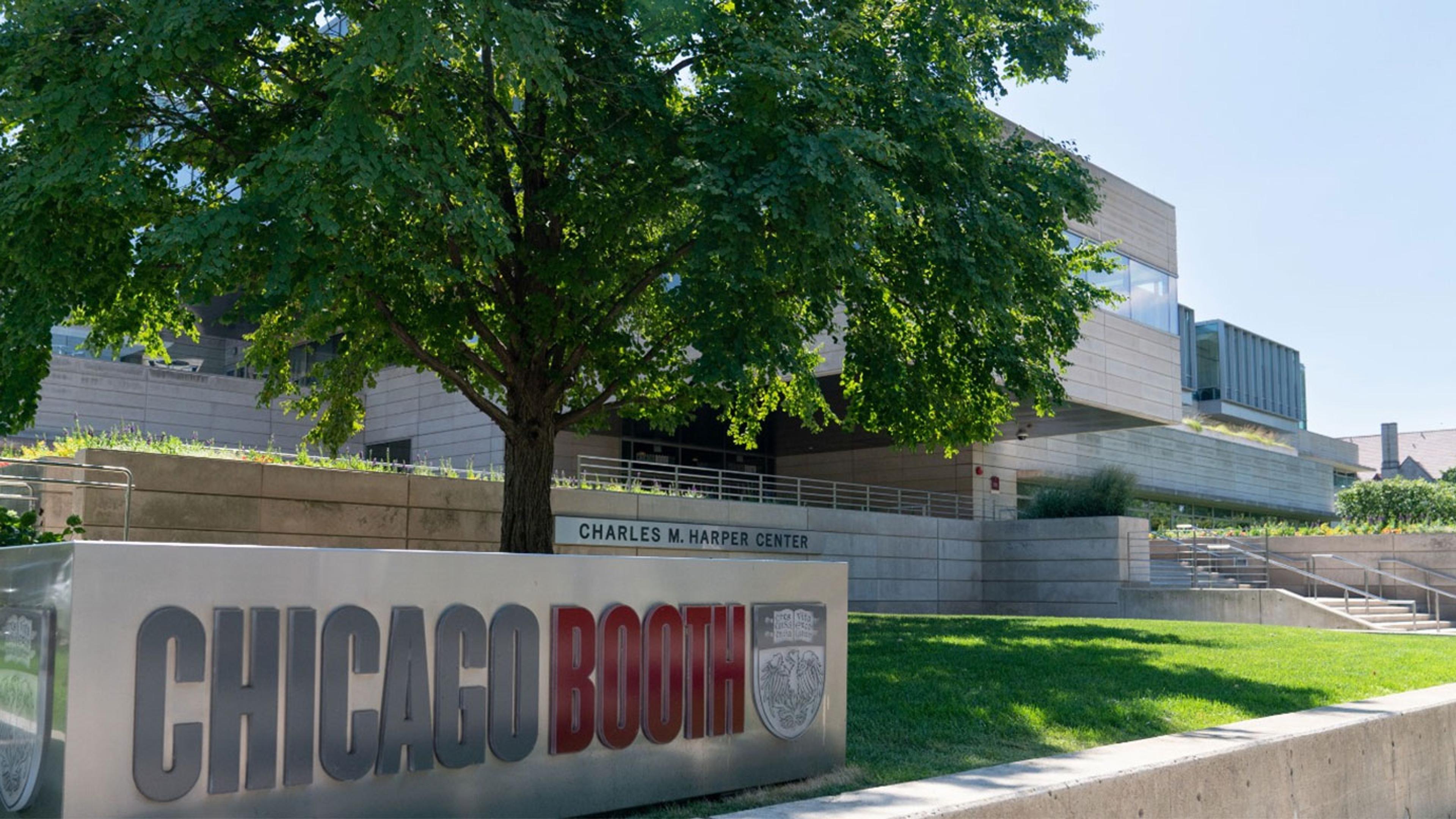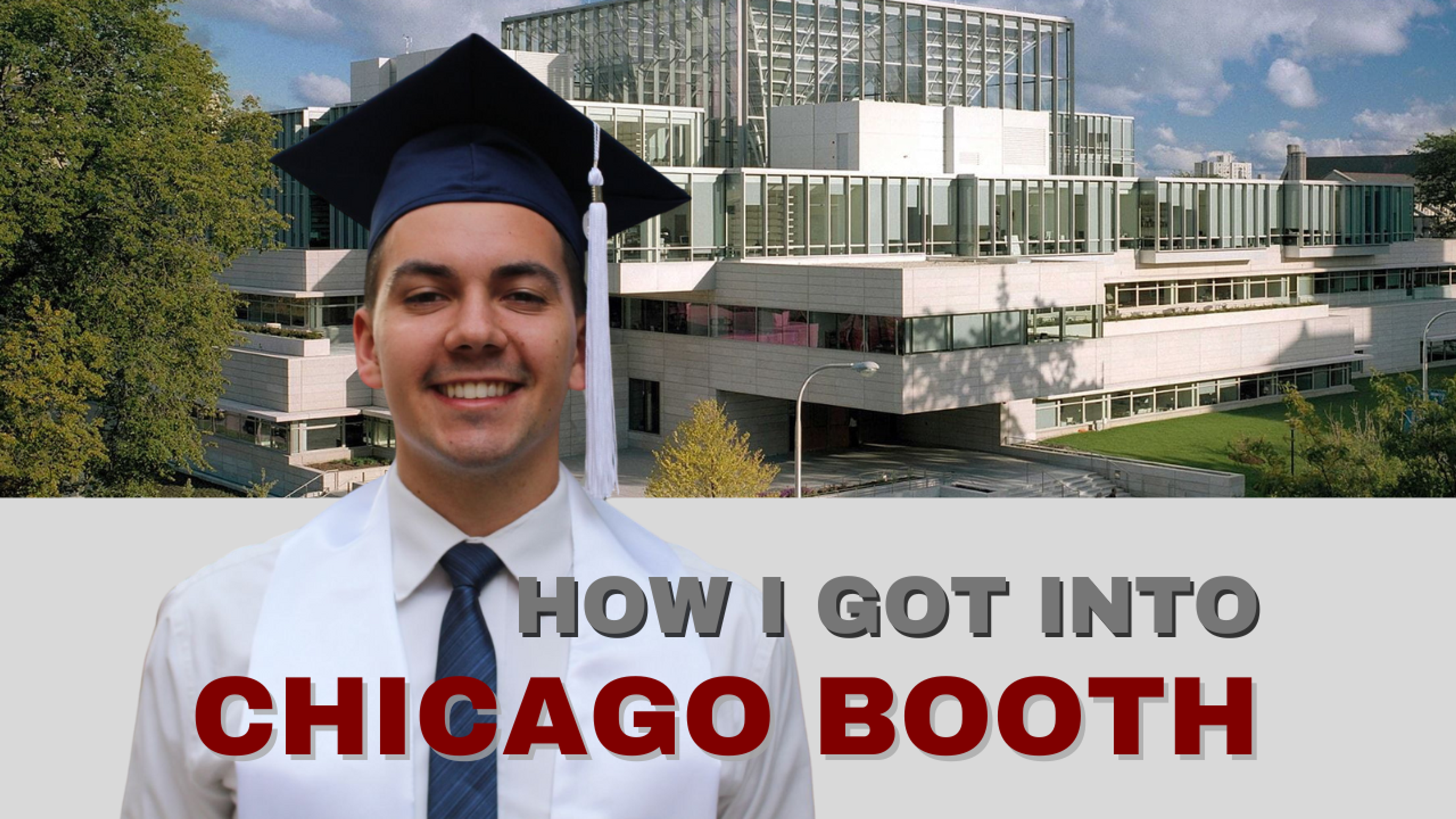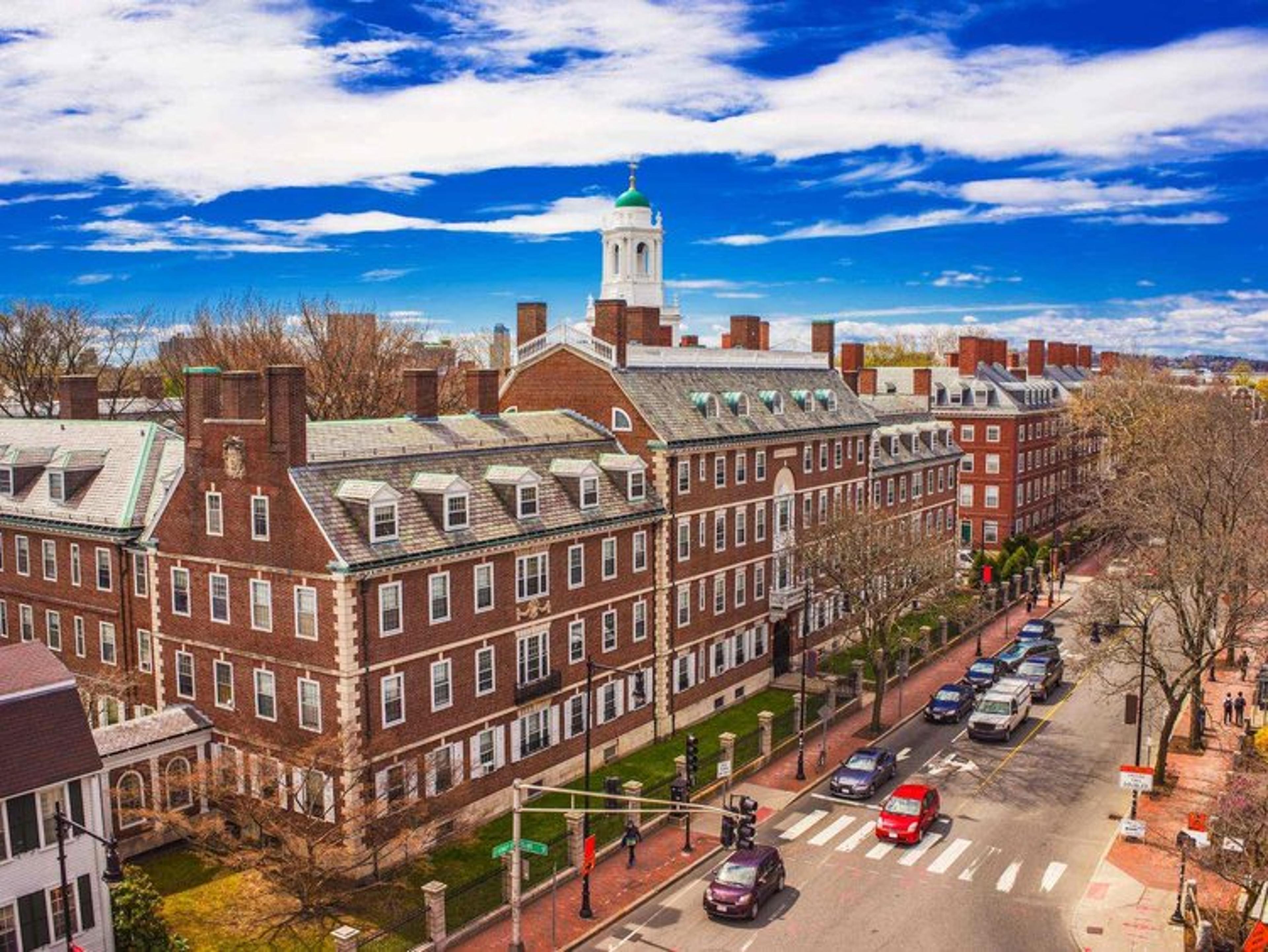M7 MBA Programs – What They Are & How to Get In
An expert admissions coach details how to get into an elite M7 business school with ways to stand out in your application, with deep-dives into all the M7 MBA programs.
By Timothy F.
Former Ad Comm | 150+ M7 Admits | Ranked top 4 firm on Poets & Quants 2025
Posted June 13, 2025

Table of Contents
Free Event

Featuring Horatiu S.
Profile Power: A LinkedIn Profile That Gets You In
Starting Tuesday, September 2
11:00 PM UTC · 45 minutes

Featuring Horatiu S.
Who Are the M7 Business Schools?
The M7, short for “Magnificent Seven,” is an elite group of the seven top business schools regularly ranked as the best in the world for graduate business education. Though many other schools also have strong programs, the M7 has consistently topped the list and is where most aspiring applicants have set their sights. The M7 includes: Stanford GSB, Harvard Business School, Wharton School (University of Pennsylvania), Kellogg School of Management (Northwestern University), Booth School of Business (University of Chicago), Sloan School of Management (MIT), and Columbia Business School.
For a full list of top schools, see: The Top 25 MBA Programs—Acceptance Rates, Tuition, and More
What Makes the M7 Great?
Each of the M7 institutions is strong in several areas important to future business leaders. This includes, but is not limited to:
- A global network of influential alumni
- A faculty composed of incredible minds and industry leaders
- Competitive admit classes full of intelligent, high-potential students
- Career support resources with varied opportunities and high post-grad salaries
- Cutting-edge research facilities
- Broad, expert course opportunities
- Study abroads, projects, internships, and other unique experiences
- The prestige that comes with being associated with a top program
Many great business schools not part of the M7–such as Yale SOM, UC Berkeley Haas, UVA Darden, Dartmouth Tuck, and Duke Fuqua–provide a lot of these same benefits. The right school for you will depend on many factors on and outside of this list; for example, financial aid opportunities, location, and specializations offered.
If you’re trying to decide what school is right for you, read How to Choose an MBA Program: The Discerning Student’s Guide. If you’re trying to decide whether to even go to business school, see Is an MBA Worth It? Pros, Cons, and How to Decide.
M7 School Deep-Dives
Harvard Business School
- Location: Boston, MA
- Founded: 1908
- Programs Offered: MBA, Doctoral, Executive Education
- Acceptance Rate: 9-10%
- Average GPA: 3.73
- Median GMAT: 740
- Notable Alumni: Michael Bloomberg, Sheryl Sandberg, George W. Bush
Harvard Business School (HBS) is renowned for its case study method and rigorous academic curriculum. It emphasizes leadership and practical learning. Its alumni network is one of the most extensive in the world, offering unparalleled opportunities for networking and career advancement. If you're a highly ambitious individual looking for a transformative experience and access to a vast network of influential professionals, HBS could be the perfect fit for you.
For more info on HBS, see:
- How I Got Into Harvard Business School With Low Test Scores
- Applying to Harvard Business School: Story of a Current Student
- Harvard Business School MBA Application Deadlines
Stanford Graduate School of Business
- Location: Stanford, CA
- Founded: 1925
- Programs Offered: MBA, MSx Program, PhD, Executive Education
- Acceptance Rate: 6-7%
- Average GPA: 3.77
- Average GMAT: 738
- Notable Alumni: Phil Knight, Mary Barra, Charles Schwab, and Leland’s very own John Koelliker
Situated in the heart of Silicon Valley in California, Stanford GSB is celebrated for its entrepreneurial spirit and innovation-focused programs. It boasts an intimate and collaborative learning environment with a focus on personal development and leadership. Stanford Graduate School is also known for its diverse student body and a strong emphasis on social responsibility and impact. If you’re an entrepreneurial-minded individual seeking an MBA program that will help you make a difference in the world through innovation and leadership, Stanford GSB should be at the top of your list.
For more info on Stanford GSB, see:
- No One from My Hometown Went to GSB – Here’s What I Did
- Stanford GSB MBA Application Deadlines
- The Best Professors at Stanford GSB
- The 5 Best Classes at Stanford's Graduate School of Business
The Wharton School at the University of Pennsylvania
- Location: Philadelphia, PA
- Founded: 1881
- Programs Offered: MBA, Executive MBA, PhD, Undergraduate
- Acceptance Rate: 22-23%
- Average GPA: 3.6
- Average GMAT: 728
- Notable Alumni: Sundar Pichai, John Sculley, Warren Buffett
The Wharton School boasts a strong finance and analytics focus while offering a diverse range of MBA programs, including a renowned healthcare management program. With its comprehensive curriculum and extensive resources, Wharton prepares finance-savvy individuals for leadership roles in various sectors. Its global reach and close-knit community provide a supportive environment for ambitious individuals to thrive. If you're a quantitatively inclined candidate looking to excel in finance or analytics, the Wharton School may be the perfect fit for you.
For more info on Wharton, see:
- Wharton MBA Application Deadlines
- How I Got Into Wharton as an International Applicant
- From Biochemistry to Wharton Business School
- How I Got Into Wharton
Booth School of Business at the University of Chicago
- Location: Chicago, IL
- Founded: 1898
- Programs Offered: Full-Time MBA, Part-Time MBA, Executive MBA, PhD
- Acceptance Rate: 20-30%
- Average GPA: 3.6
- Average GMAT: 728
- Notable Alumni: Satya Nadella, Joseph Neubauer, James O. McKinsey
Chicago’s Booth School of Business is renowned for its data-driven curriculum and strong emphasis on empirical research. It offers flexible programs that allow students to tailor their education to their career goals. Booth's vibrant and intellectually stimulating environment fosters analytically minded individuals who thrive on challenging conventional wisdom and driving innovation. With its strong reputation in finance, entrepreneurship, and economics, Booth is an ideal choice for analytical thinkers looking to make a significant impact in the business world.
For more info on Booth, see here:
- Chicago Booth MBA Application Deadlines
- How to Answer the “Why Booth?” Interview Question
- A Guide to the Booth Essays
Kellogg School of Management at Northwestern University
- Location: Evanston, IL
- Founded: 1908
- Programs Offered: Full-Time MBA, Part-Time MBA, Executive MBA, One-Year MBA, PhD
- Acceptance Rate: ~20%
- Average GPA: 3.7
- Average GMAT: 731
- Notable Alumni: Edwin Booz, Keith Sherin, Ann Fudge
The Kellogg School of Management is known for its collaborative and team-oriented approach to education. Its curriculum emphasizes experiential learning and encourages students to work together to solve real-world challenges. Kellogg's diverse community and global perspective attract collaborative individuals who excel in team environments and value diversity of thought. If you're a team player looking for a dynamic learning experience that emphasizes collaboration and real-world application, Kellogg could be the perfect fit for you.
For more info on Kellogg, see here:
- How to Nail Your Kellogg MBA Application Essays
- How to Ace Your Kellogg Video Essay – Overview & Expert Tips
Columbia Business School
- Location: New York, NY
- Founded: 1916
- Programs Offered: MBA, Executive MBA, PhD, Executive Education
- Acceptance Rate: 22%
- Average GPA: 3.5
- Average GMAT: 730
- Notable Alumni: Henry Kravis, Warren Buffett, Henry Paulson
Columbia Business School offers a wide range of programs and benefits from its strategic location in a global business hub. Its rigorous curriculum and focus on entrepreneurship and leadership development prepare ambitious individuals for success in the dynamic business world. Columbia's extensive alumni network and proximity to leading industries provide unparalleled opportunities for networking and career advancement. With the highest percentage of international students among the M7 schools, at 47%, Columbia offers a diverse and inclusive learning environment that can be particularly beneficial for other international students seeking a supportive community and global perspective. If you're a goal-oriented individual seeking a challenging yet rewarding MBA experience in the heart of New York City, Columbia Business School may be the perfect fit for you.
For more info on CBS, see: A Guide to the Columbia Business School Essays
MIT Sloan School of Management
- Location: Cambridge, MA
- Founded: 1914
- Programs Offered: MBA, Executive MBA, Master of Finance, Master of Business Analytics, PhD
- Acceptance Rate: 14%
- Average GPA: 3.61
- Median GMAT: 730
- Notable Alumni: Benjamin Netanyahu, Meg Whitman, John C. Reed
MIT Sloan School of Management puts a strong focus on innovation, entrepreneurship, and technology management. It offers a hands-on learning approach through action learning labs and real-world projects. MIT Sloan's close ties to the tech industry and emphasis on innovation attract tech-savvy individuals who aspire to lead in a rapidly evolving business landscape. If you're a creative thinker with a passion for technology and innovation, MIT Sloan offers an ideal platform to hone your skills and make a lasting impact in the business world.
For more info on MIT Sloan:
- MIT Sloan Cover Letter: Overview & Expert Tips
- MIT Sloan Video Statement: Overview, Advice, & Common Mistakes
Who Are the M7 Schools Looking For?
As you can see, these schools are competitive and boast amazing world leaders as alumni. Getting in is no easy feat and requires a well-thought-through narrative, impressive work experiences, robust extracurriculars, and solid test scores/GPA. Let’s break these qualifications down a little more and talk through what admissions committees are looking for specifically.
1. You have a strong academic background.
M7 schools place a significant emphasis on academic excellence because they want to know that you can keep up with a highly intelligent class and faculty. Successful applicants have a competitive GPA (usually 3.5 or higher) and a high GMAT (typically 720 or above) or GRE score that demonstrates their ability to excel in a rigorous academic environment. Check out the MBA class profiles of your target schools before applying so you know what average you should be going for. Be sure to prepare thoroughly for these exams to maximize your chances – the more time you can give yourself, the better you’ll do.
Read: GMAT vs. GRE for Business School—Which Should You Take (and How to Ace Both)
2. You can show impact.
Primarily on your resume, but throughout your entire application, you want to show that you will be a valuable asset to the class. One primary way of doing this is by demonstrating impact wherever you can; in other words, why were the projects you worked on, companies you were a part of, organizations you volunteered at, etc. better because you were there? You can show this by quantifying results on your resume and making sure you’ve taken leadership positions, among other tactics.
3. You have leadership experience.
These top schools want to accept people who will positively reflect those programs after they graduate. In other words, they want people who will eventually be listed after “Notable Alumni:” and these people are, almost always, amazing leaders. Leadership skills and potential are some of the strongest predictors of future success, so anything you can do to show that you have it will help you make a stronger case for admission.
4. You “fit” with the school.
Each M7 has a unique culture and they want to bring people into the community who will fit into it. For example, Stanford GSB is known for entrepreneurship and innovation, and that bleeds down into a more laid-back, informal culture in which students don’t dress in formal business wear for classes. The best way to better understand your target schools’ cultures is to talk to as many people as you can, especially current students and alumni. Then, take what you learn and weave it through your application to (subtly) say, “Look, I belong here.”
Tips to Craft a Winning M7 Application
Building a compelling application for M7 business schools is both an art and a science. It involves not only showcasing your strengths but also demonstrating a deep understanding of each school's unique culture and values. From crafting authentic essays to selecting the right recommenders follow these steps to increase your chances of securing a coveted spot in these prestigious programs. Whether you're a seasoned professional or a rising star, this section will help you create a standout application that aligns with your aspirations and the expectations of M7 admissions committees.
Visit Schools and Network
Visiting the campuses of M7 schools and networking with alumni and current students can help you better understand each institution's culture and values. Make sure to attend information sessions, campus tours, or virtual events, all of which are designed to allow prospective MBA students to gain a deeper understanding of what each school offers.
Additionally, building relationships with alumni and current students can provide valuable connections and support throughout the application process and beyond. When you network, especially with recent MBA graduates, it helps demonstrate your genuine interest in the program and can help you stand out in a competitive pool of other potential MBA students.
Remember:
- Attend information sessions, campus tours, or virtual events. Also interact with current students and alumni to gain insights.
- Build a network with individuals connected to the schools for support and guidance.
Align Yourself with Each School’s Values
To double down on the “fit” point from above, every M7 business school has its own unique culture, values, and strengths. Taking time to research and understand what sets each institution apart and how your goals align with their mission will pay off. Use your application to show how you can contribute to and benefit from their community.
Remember:
- Most of the M7 business schools have a corner of their website dedicated to explaining their Culture and Values. Harvard Business School, for example, has a website for its Community Values, which explains its institutional/academic values as well as social values. Use these sections from each business school’s website to start you off on your research.
Show How You’ve Grown
Admissions committees value candidates who have demonstrated personal and professional growth over time. Reflect on challenges you've faced and how you've overcome them, both in your career and personal life. Highlight instances where you've taken on new responsibilities, acquired new skills, or overcome obstacles. Demonstrating growth not only showcases your resilience and adaptability but also indicates your potential for future success as an MBA student and graduate.
Remember:
- Reflect on challenges faced and how they've been overcome.
- Showcase resilience, adaptability, and personal growth.
- Articulate how these experiences have prepared you for success in the MBA program.
Be Yourself in Your Essays
Your essays are your greatest opportunity to showcase your personality, values, and aspirations to admissions committees. Be authentic and genuine in your responses, sharing personal anecdotes and experiences that reflect who you are as a person and as a prospective MBA student. However, also take care to avoid generic or clichéd responses, and instead, focus on conveying your unique perspective and contributions to the MBA community.
Remember:
- Your essays should reveal not just your accomplishments, but also your journey and what drives you. Don't be afraid to share moments of vulnerability or setbacks – admissions committees appreciate honesty and resilience. By letting your true self shine through, you'll not only stand out from the crowd but also give the committee a genuine glimpse into who you are and what you can bring to their program.
Read:
- The Ultimate M7 MBA Essay Guide
- How to Write a Powerful MBA Essay
- The Top 15+ MBA Essay Writing Services
Make the Most of Optional Essays
Optional essays provide an opportunity for MBA applicants to address any weaknesses or gaps in their application. If a school offers an optional essay, consider using it strategically to provide context for any inconsistencies or areas of concern, such as gaps in employment or lower-than-average test scores. Use this space to highlight additional achievements, experiences, or perspectives that you haven't been able to share elsewhere in your application.
Remember:
- Address any weaknesses or gaps in your application, such as gaps in employment or lower-than-average test scores.
- Avoid repeating information already covered in your main essays and focus on providing valuable insights.
Gather Strong Recommendation Letters
It's crucial to select recommenders who know you well and can provide specific examples of your achievements, leadership skills, and character. Reach out to potential recommenders at least four months before the application deadline to give them ample time to write a thoughtful letter. Consider asking more than the program’s designated amount of recommenders to ensure you have backup options in case one of them becomes unavailable. Provide each recommender with relevant information about your goals and experiences to help them craft a compelling letter that strengthens your application.
Remember:
- Select individuals who can speak to different aspects of your candidacy, such as professors who can attest to your academic abilities, supervisors who can highlight your leadership skills, or mentors who can provide insight into your personal character. Tailor your choices based on the specific requirements of each school's application.
- Schedule meetings (ideally in-person) with potential recommenders to discuss your career goals, experiences, and why you're applying to MBA programs. Ensure they have a clear understanding of your strengths and accomplishments.
- Keep in touch with your recommenders throughout the application process. Provide updates on your progress and any relevant achievements or milestones. This helps to keep them engaged and ensures they're prepared to write a strong letter of recommendation.
See: How to Get the Perfect MBA Letter of Recommendation—With Examples and MBA Recommender Questions and Criteria for the Top 10 Business Schools
Make Sure You’re Prepared for Your Interviews
If you receive an interview invitation, prepare diligently to make a positive impression. Practice answering common MBA interview questions and conduct mock interviews to refine your responses. Research the school's interview format and expectations, and be ready to discuss your goals, experiences, and why you're a strong fit for the program.
Read: How to Ace Your MBA Interview: With Prep Questions & Answers
Building a strong application for M7 business schools requires thorough self-assessment, research, and careful crafting of your materials. Be sure to put your best foot forward by showcasing your academic achievements, leadership potential, and alignment with each school's values and culture. Remember that each application should be a personalized reflection of who you are and why you belong in their specific MBA program.
Work With a Former Booth Insider to Boost Your MBA Application
Tim F. is a Chicago Booth alumnus and former Booth adcom fellow. He is also an expert coach with a passion for getting YOU into your dream MBA program! Book a FREE intro call with Tim F. today!
Read:
- How to Answer the “Why Booth?” Interview Question
- Five Things MBB Recruiters Will Be Looking for On Your Resume and How to Best Demonstrate Them
- How to Succeed in a Consulting Career - An Expert Coach's Guide
M7 MBA Schools: FAQs
What are the M7 business schools?
- M7 business schools refer to a group of prestigious business schools known for their prestige and high academic standards. The M7 includes Harvard, Stanford, Wharton, MIT Sloan, Columbia, Chicago Booth, and Northwestern Kellogg.
Why pursue an MBA at an M7 School?
- Pursuing an MBA at an M7 school offers extensive networking opportunities, access to top-tier faculty and resources, significant career advancement potential, and a credential recognized globally for its excellence.
What are the typical admission requirements for M7 MBA programs?
- Typical requirements include a competitive GMAT or GRE score, relevant work experience, strong academic records, leadership qualities, and compelling essays and recommendations.
How to prepare for GMAT/GRE for M7 MBA admissions?
- Preparation should include a structured study plan, utilizing official test preparation materials, practicing with mock exams, and possibly enrolling in test preparation courses. And, of course, working with an expert GMAT/GRE tutor.
What is the average cost of attending an M7 MBA program?
- The average cost, including tuition and living expenses, can range from $100,000 to $200,000 depending on the school and the length of the program.
How hard is it to get into an M7 school?
- M7 MBA programs are highly competitive, with acceptance rates typically ranging from 6% to 30%.
What are the career outcomes for M7 MBA graduates?
- Graduates often secure positions in top firms across various industries, including consulting, finance, technology, and entrepreneurship, with significant salary increases and leadership roles.
How important are extracurricular activities in M7 MBA admissions?
- Extracurricular activities are crucial as they demonstrate leadership, commitment, and the ability to contribute to the school community.
Can international students apply to M7 MBA programs?
- Yes, international students are welcome to apply and make up a significant portion of the student body. They must meet the same criteria as domestic students and prove English proficiency.
What are the key differences between the M7 MBA programs?
- Each M7 school has unique strengths; for example, Harvard is known for its case method, while Stanford excels in entrepreneurship and innovation.
How to choose the right M7 MBA program for your career goals?
- Assess each program’s core strengths, curriculum, culture, and the industries where it has strong placements. Align these with your career aspirations, and read the article above for tons of additional resources.
What support do M7 schools offer for entrepreneurship?
- M7 schools offer robust entrepreneurial support, including incubators, accelerators, mentorship, and access to venture capital, as well as a network of classmates and alumni for cofounders and advice.
Are part-time or executive MBA options available at M7 schools?
- Many M7 schools offer part-time or executive MBA programs designed for working professionals who wish to continue their education without leaving their jobs. For example, Chicago Booth has one of the best part-time MBA programs, Wharton has a top-rated Executive MBA, and Kellogg has a popular One-Year MBA Program.
How do I write a standout MBA application essay for M7 schools?
- Focus on authentic storytelling, clearly articulate your career goals, demonstrate how an MBA fits into your career path, and highlight unique experiences that set you apart. We highly recommend working with an MBA coach on your essays to make sure you’re telling the strongest story possible and highlighting your unique strengths.
What are common interview questions for M7 MBA admissions?
- Common M7 interview questions include discussing your career goals, why you chose this particular MBA program, how you handle challenges, and instances demonstrating leadership and teamwork.
Written by Timothy
5.0
(98)
I have helped many applicants successfully gain admission to top MBA programs both in the US and in Europe. I worked as an admissions fellow at Chicago Booth. In this role, I interviewed and reviewed the application details of almost 100 applicants across multiple quarters. I understand how to craft a dynamic story that will jump off the page for Ad Comms. Before pursuing an MBA, I started my career at Goldman Sachs, supporting prime brokerage clients with cash and security instruction and settlement. I am currently a project leader at Boston Consulting Group, advising clients mostly in the Gen AI, enterprise transformation, and org design practice areas. At BCG, I have supported clients with pricing strategy, org design, labor optimization, technology integration, and market analysis projects. I am a client service expert and can share valuable insight into how to successfully recruit and be successful at a top-tier investment bank or consulting firm. I earned a B.S. in Economics and in Finance from Utah State University and an MBA with high distinction from The University of Chicago Booth School of Business, where I graduated as an Amy and Richard F. Wallman Scholar.
Timothy has helped clients get into organizations like:
Chicago Booth
Kellogg School of Management (Northwestern)
Columbia Business School
The Wharton School (UPenn)
Yale School of Management











